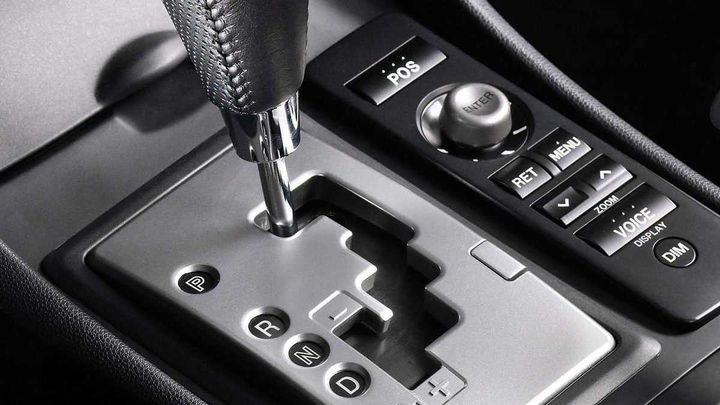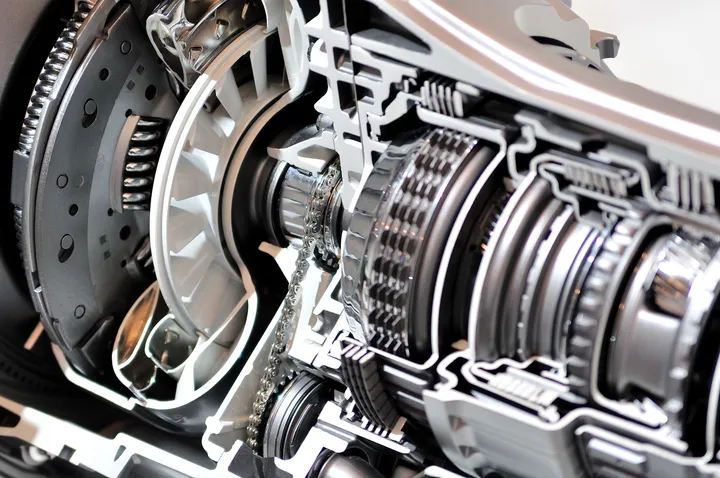


Transmission shifting hard from 1st to 2nd gear is a common issue experienced by many drivers, particularly in automatic transmissions. This problem can manifest as a jerky, rough, or delayed shift when the transmission transitions from the first gear to the second gear. It can be an indication of various underlying issues within the transmission system, ranging from simple maintenance needs to more complex mechanical problems. Understanding the potential causes and addressing them promptly is crucial to prevent further damage and ensure smooth gear shifts.

Before we dive into the specifics, let's briefly discuss the transmission's role in your car. This intricate component acts as the middleman between your engine and the wheels, allowing for smooth and efficient power delivery. It's responsible for shifting gears, ensuring your vehicle operates at optimal engine speeds for various driving conditions.
Have you ever experienced a sudden, jarring sensation when your car shifts from 1st to 2nd gear? It's like hitting a speed bump at low speeds, causing your vehicle to shudder and your passengers to feel unsettled. This harsh shift can be frustrating, especially if it occurs repeatedly during your daily commute or leisurely drives.
Now, let's delve into the potential causes behind this unpleasant transmission behavior. As a mechanic, I've encountered various scenarios that can lead to a harsh 1st to 2nd gear shift:
| Cause | Description |
|---|---|
| Low or Contaminated Transmission Fluid | Transmission fluid acts as a lubricant and hydraulic fluid for the transmission components. Low fluid levels or contaminated/degraded fluid can cause increased friction and wear, leading to harsh shifts. |
| Faulty Shift Solenoids or Valve Body | Shift solenoids control the flow of transmission fluid for gear changes. Sticking or malfunctioning solenoids can cause delayed or harsh engagements during shifts. The valve body contains the solenoids and valves that direct fluid flow, and it can become clogged or damaged over time. |
| Worn Clutch Packs or Bands | Automatic transmissions use clutch packs and bands to engage and disengage gears. As these components wear out, they may not engage smoothly, resulting in harsh shifts. |
| Low Line Pressure | Insufficient line pressure can prevent the clutch packs from engaging properly, leading to slippage and harsh shifts. Low pressure can be caused by issues with the pressure control solenoids, pump, or leaks. |
| Faulty Sensors or Wiring | Transmission sensors like speed sensors or the transmission range sensor provide input for smooth shifting. Faulty sensors or wiring issues can cause the transmission computer to mistime shifts or apply incorrect pressures. |
| Mechanical Issues | Internal transmission components like the 1-2 shift accumulator, governor, or synchronizers can wear out and cause harsh 1-2 shifts specifically. |
As a mechanic, I follow a systematic approach to diagnose transmission issues, including the harsh 1st to 2nd shift. Here are the steps I typically take:
Inspection
Check transmission fluid level and condition when the transmission is warm.
Scan for diagnostic trouble codes related to solenoids, sensors, or other transmission components.
Road Test
Perform a thorough road test to observe shift quality under various driving conditions, such as acceleration, deceleration, and different speeds.
Visual Inspection
Carefully inspect the transmission for any fluid leaks.
Check the condition of the transmission mount and driveline components.
Symptom Analysis
Based on the symptoms observed during the road test and inspection, narrow down the potential causes.
Delayed or erratic shifts may point to solenoid or sensor issues.
Slippage during shifts can indicate worn clutch packs or bands.
Whining noises during shifts may be caused by mechanical component wear.
| Symptom | Potential Cause |
|---|---|
| Delayed or erratic shifts | Solenoid or sensor issues |
| Slippage during shifts | Worn clutch packs or bands |
| Whining noises during shifts | Mechanical component wear |
Once the root cause of the harsh 1st to 2nd shift has been identified, it's time to address the issue. Here are some common repair procedures I may recommend:
| Repair | Description |
|---|---|
| Transmission Fluid Change | Drain the old fluid and refill the transmission with fresh, manufacturer-specified fluid and a new filter. This may resolve issues caused by contaminated or degraded fluid. |
| Solenoid or Valve Body Replacement | Follow the manufacturer's procedures to replace faulty shift solenoids or the entire valve body. Requires transmission disassembly, so labor costs can be significant. |
| Clutch Pack or Band Replacement | Remove and replace worn clutch packs or bands. A major repair that involves substantial transmission disassembly. |
| Sensor or Wiring Repairs | Diagnose and replace any faulty transmission sensors or repair wiring issues. May require reprogramming of the transmission computer after repairs. |
| Mechanical Component Replacement | Rebuild or replace internal components like the 1-2 shift accumulator, governor, or synchronizers. Typically requires complete transmission overhaul or replacement. |
Follow all safety procedures when working on transmissions.
Use only the specified transmission fluid for your vehicle.
Transmission repairs should be performed by qualified technicians due to the complexity involved.
To avoid transmission issues like the harsh 1st to 2nd shift, I always recommend following these preventive measures:

Regular Maintenance
Follow the manufacturer's recommended transmission fluid change intervals.
Inspect for any fluid leaks during routine vehicle maintenance.
Proper Operation
Avoid aggressive driving habits that can cause excessive wear on transmission components.
Allow the transmission to warm up before driving at high speeds or towing heavy loads.
Do not overload the vehicle beyond its specified towing or payload capacity.
The cost of repairing a transmission that shifts hard from 1st to 2nd gear can vary significantly depending on the root cause and the extent of the repairs needed. Here's a general breakdown of potential costs:
| Repair | Cost Range |
|---|---|
| Transmission fluid change | $100 - $300 |
| Solenoid or valve body replacement | $500 - $1,500 |
| Clutch pack or band replacement | $1,000 - $3,000 |
| Sensor or wiring repairs | $200 - $800 |
| Mechanical component replacement or transmission overhaul | $2,000 - $5,000 |
| Complete transmission replacement | $2,500 - $6,000 (depending on vehicle and transmission type) |
It's essential to have a qualified technician diagnose the specific issue to provide an accurate cost estimate. In some cases, if the transmission is severely worn or damaged, replacing it may be more cost-effective than attempting major repairs, especially for older vehicles with high mileage.
Dealing with a transmission that shifts hard from 1st to 2nd gear can be frustrating, but with the right diagnosis and repairs, you can restore the smooth, seamless shifting experience you deserve. As a mechanic, I understand the importance of a well-functioning transmission for your driving comfort and safety.
Remember, regular maintenance and proper operation are key to prolonging the life of your transmission and avoiding costly repairs down the road. If you ever encounter a harsh 1st to 2nd shift or any other transmission-related issues, don't hesitate to seek the expertise of a qualified mechanic.
Happy and smooth driving, my friends!
Low or contaminated transmission fluid and faulty components like shift solenoids, valve body, clutch packs, and bands can cause harsh 1-2 shifts. Mechanical issues with parts like the 1-2 shift accumulator or governor can also lead to this problem.
Perform a thorough inspection, check for diagnostic trouble codes, conduct a road test to observe shift quality, and analyze symptoms like delayed shifts or slippage to narrow down the potential causes.
Common repairs include transmission fluid and filter changes, replacing faulty solenoids or valve bodies, rebuilding or replacing worn clutch packs or bands, and addressing mechanical component issues.
Yes, low transmission fluid levels can lead to various shifting issues, including delayed engagement, slippage, and rough shifting in addition to harsh 1-2 shifts.
Follow the manufacturer's recommended intervals for transmission fluid changes, typically every 30,000 to 100,000 miles, depending on your vehicle and driving conditions.
Yes, aggressive driving habits like rapid acceleration and abrupt braking can put additional stress on the transmission components, potentially leading to premature wear and shifting issues.
Signs of a failing transmission include slipping gears, delayed engagement, rough shifting, strange noises during shifting, leaking fluid, and the illumination of the check engine light.
For older vehicles with high mileage or severe transmission damage, replacing the transmission may be more cost-effective than attempting major repairs. Consult a qualified mechanic for an accurate assessment.
Yes, transmission issues like slippage or rough shifting can negatively impact fuel efficiency as the engine has to work harder to compensate for the transmission's inefficiencies.
Follow the recommended maintenance schedule, use the correct transmission fluid, avoid aggressive driving habits, and address any shifting issues promptly to prevent further damage and prolong the life of your transmission.

Sarah isn't your average gearhead. With a double major in Mechanical Engineering and Automotive Technology, she dived straight into the world of car repair. After 15 years of turning wrenches at dealerships and independent shops, Sarah joined MICDOT to share her expertise and passion for making cars run like new. Her in-depth knowledge and knack for explaining complex issues in simple terms make her a valuable asset to our team.












